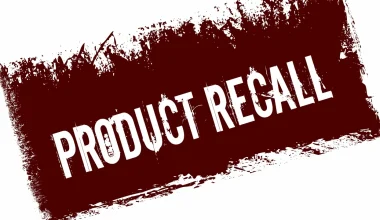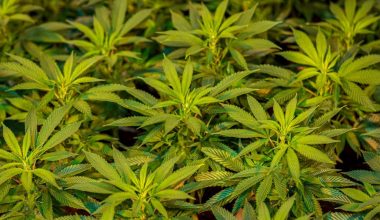Familiar allegations of marijuana testing lab fraud – including vape oil cartridges with “certified” total cannabinoids of more than 100% – are now roiling the adult-use market in New York.
Accusations that labs are inflating THC potency to satisfy clients – and potentially manipulating data in tests meant to ensure consumer safety – echo similar complaints made across the country.
But they hit New York at a sensitive time.
Critics say the lab-fraud problem threatens to undermine consumer confidence just as recreational cannabis sales in New York eclipsed $1 billion for the first time after a rocky start.
Making the problem worse, according to two lab operators in New York who spoke with MJBizDaily, is that regulators aren’t taking the problem seriously.
‘The last thing NY cannabis needs right now’
In a December letter to the state Office of Cannabis Management (OCM), representatives from two of the state’s 16 testing labs outlined what they said are “serious problems.”
The problems included cannabis products with inflated THC potency, as well as vape oil cartridges with impossible cannabinoid profiles.
“If these issues remain unaddressed, we fear that unethical and unsafe lab results will become the norm, mirroring situations seen in other states,” Aaron Riley, the CEO of Orlando, Florida-based Certified Testing and Data, and Edward Lukaszek, the CEO of Biotrax Testing Laboratory in Buffalo, told the OCM in a Dec. 17 letter obtained by MJBizDaily.
They added that “no enforcement on this matter will only hamper the program for years to come.”
“We respectfully request that the OCM enact immediate recalls to begin dealing with these issues,” their letter continued.
“There is no place for such behavior in New York’s cannabis industry. It is leading to an erosion of trust – the last thing NY cannabis needs right now.”
But, as Riley and Williams Nichols, lead technical director at Biotrax, told MJBizDaily in subsequent interviews, regulators are brushing off their concerns.
Lab officials are also months overdue in releasing data sets that could paint a fuller picture of the situation, they claimed.
In other states, anonymized testing data has revealed patterns that suggest data manipulation.
That would track with what some industry players believe is a deliberate effort to massage results to please clients.
Meanwhile, Nic Fera, a part-owner of Amsterdam, New York, cultivator Goldfinch Flora and board member of the Cannabis Farmers Alliance, claimed to have been approached by a salesperson from a licensed lab who offered a guarantee of high-potency test results – for a price.
“It’s a crisis for sure,” Fera told MJBizDaily.
Marijuana regulators’ actions unclear
In response to an MJBizDaily request for comment, an OCM spokesperson said the agency “does not comment on open investigations, nor does it disclose actions taken against a licensee or permittee to a third party.”
In a Dec. 20 response to Lukaszek and Riley, state cannabis officials insisted they are taking “these concerns seriously and (are) committed to protecting public health and safety.”
“I can assure you that OCM is investigating the concerns you provided and will act in accordance with its regulatory protocols, should any allegations of potency inflation be substantiated,” wrote Nicole Rosa, the executive deputy director of the agency’s Office of Health and Scientific Affairs.
Rosa also wrote that whatever action OCM might be taking is confidential.
“OCM does not comment on open investigations, nor does it disclose actions taken against a licensee or permittee to another licensee or permittee, including to the complainant,” she wrote, in part.
“While the information you shared is much appreciated as we work to investigate concerns regarding potency inflation, OCM cannot recall products or impose disciplinary action upon licensees based solely upon the information you presented.”
Blowing the whistle
In their letter, Biotrax’s Lukaszek and Certified Testing’s Riley claim to “have received customer complaints regarding pesticide contamination, excessive micro reruns and false COAs (certificates of analysis)” produced by three competing labs.
Those labs are also “consistently reporting products with tested values beyond what other labs have found,” the letter claimed.
The lab officials also claimed in their letter to “have performed off shelf testing on various products proving that these results are dangerously inflated and misleading consumers.”
“Based on our findings, there is a pattern in the data which illustrates that these labs are likely inflating every test they complete.”
According to the letter, Certified Testing and Biotrax tested flower that a competitor certified at more than 30%.
Their tests found THC content to be in the teens.
The letter also identifies what it claims are several dozen examples of vaporizer oil cartridges with “certified” cannabinoid profiles of at or near 100%.
“A fifth grader can tell you that’s not right,” Riley told MJBizDaily.
How high is too high?
Such lab results are not meant to be exact.
State law allows a “potency variance” of 85%-115% in adult-use products, according to guidelines updated last summer.
However, even total cannabinoid percentages in excess of 90% are questionable.
That’s because vape oil generally contains terpenes for flavor and other compounds, such as “thinning agents,” that allow the product to be vaporized, according to published research.
In a 2021 study of 12 vape oil cartridges obtained from legal stores conducted by the California Department of Public Health, average total THC content rarely exceeded 70%.
In an MJBizDaily review of vaporizer products on New York cannabis store menus, advertised THC contents in excess of 90% was common.
Both the wide potency variance and what they claimed is lax enforcement of mislabeled potency threaten to render lab results meaningless, Riley said.
2024 MJBiz Factbook – now available!
Exclusive industry data and analysis to help you make informed business decisions and avoid costly missteps. All the facts, none of the hype.
Featured inside:
- Financial forecasts + capital investment trends
- 200+ pages and 49 charts highlighting key data figures and sales trends
- State-by-state guide to regulations, taxes & market opportunities
- Monthly and quarterly updates, with new data & insights
- And more!
Familiar lab-testing problem with state solution
According to some critics, similar dynamics are unfolding in other states.
In Massachusetts, one lab also active in New York, MCR Labs, sued some of its competitors in state court after it uncovered what it claimed to be a widespread pattern of potency inflation and data manipulation that allowed product tainted by mold or pesticides to be cleared for sale.
At the same time, most observers agree that best practices involve aggressive state oversight.
In other states, such as California and Colorado, state reference laboratories obtain product from marijuana store shelves for independent testing.
When products are found to have inflated potency or to be contaminated with pesticides or mold, the state regulators then issue a recall.
Recalls in California increased significantly – and some labs went out of business – after stricter regulations were imposed, including a more rigorous formula for determining total THC.
But New York has yet to publicize any recalls or reference testing.
An OCM spokesperson told MJBizDaily in September that as of then, reference testing “has not been targeted at validating the reliability of permitted laboratory results.”
Chris Roberts can be reached at chris.roberts@mjbizdaily.com.
Medical Disclaimer:
The information provided in these blog posts is intended for general informational and educational purposes only. It is not a substitute for professional medical advice, diagnosis, or treatment. Always seek the advice of your physician or other qualified healthcare provider with any questions you may have regarding a medical condition. The use of any information provided in these blog posts is solely at your own risk. The authors and the website do not recommend or endorse any specific products, treatments, or procedures mentioned. Reliance on any information in these blog posts is solely at your own discretion.






